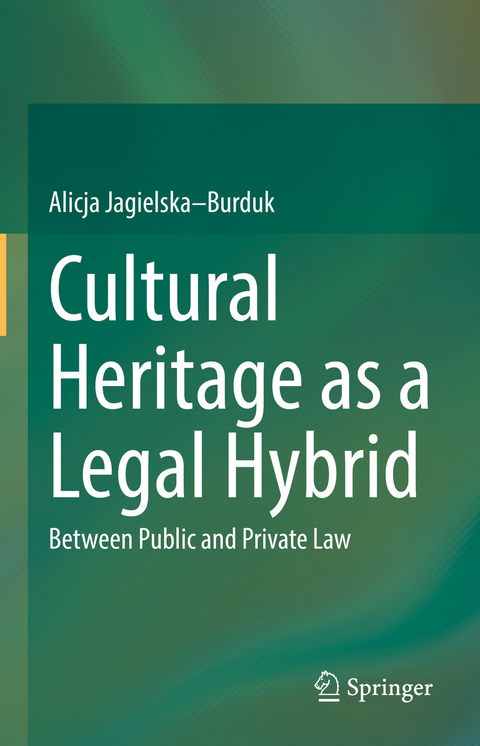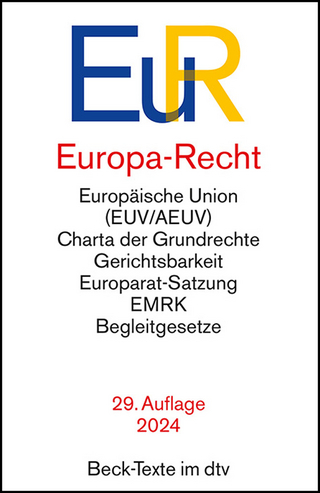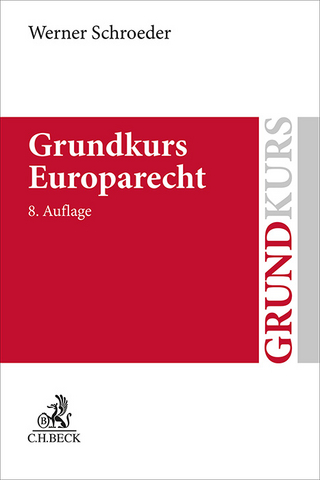
Cultural Heritage as a Legal Hybrid
Springer International Publishing (Verlag)
978-3-031-04945-3 (ISBN)
This book examines cultural heritage law in both its public and private modalities, focusing on the search for new solutions in national legislations. Both tangible and intangible cultural heritage pose challenges for national legislation regarding the legal histories of the respective countries, obligations deriving from international law, and the independence of respective national searches for a tailored protection model. Although the concept of cultural heritage transcends civil law regulation and property rights, it must be considered when attempting to establish any coherent cultural heritage protection system. In national legislation, we can now observe an increased interest in leveraging civil law or private law to strengthen cultural heritage protection systems. This book looks beyond public and private law on cultural heritage in order to address its complex status as a legal hybrid.
Further, the book shows how current problems in the international debate are mirrored in national legislation. Poland is used as a practical example, while also referring to other countries' solutions as well as EU and international law instruments. This approach enables the reader to examine the creation of national legislation at the operational level and provides a template for all national lawyers concerning current challenges and emerging trends.
The book's target audience includes researchers and practitioners in the field of cultural heritage law, as well as public and private law experts. The topics covered can also be helpful for law students, art market actors, and all those interested in the challenges of cultural heritage protection.
Alicja Jagielska-Burduk, PhD, MBA, legal counsellor, UNESCO Chair on Cultural Property Law at the University of Opole. She is the co-founder and editor-in-chief of the international journal Santander Art and Culture Law Review. She specializes in cultural management, encompassing the issues of participation and access to culture and cultural heritage. In the course of her research and legal practice, she has gained considerable expertise in the culture sector, including focus group analysis in relation to various stakeholders and groups of interest. In 2014, the government of Poland nominated her as a mediator at the UNESCO Intergovernmental Committee for Promoting the Return of Cultural Property to Its Countries of Origin or Its Restitution in Case of Illicit Appropriation. In 2020, she was selected as an arbitrator for the initial Arbitrator Pool of the Court of Arbitration for Art (CafA) in Hague. She is a member of the Polish National Commission for UNESCO.
Cultural heritage as a legal hybrid. Between public and private law.- Cultural heritage. Legal concepts and protection Cultural heritage forms. Legal challenges.- Polish private law and cultural heritage.- A new approach to cultural heritage and the legal regime of common resources in Poland.- Cultural heritage protection in private law. In search of new solutions.
| Erscheinungsdatum | 22.07.2022 |
|---|---|
| Zusatzinfo | VIII, 342 p. 1 illus. |
| Verlagsort | Cham |
| Sprache | englisch |
| Maße | 155 x 235 mm |
| Gewicht | 694 g |
| Themenwelt | Recht / Steuern ► EU / Internationales Recht |
| Sozialwissenschaften ► Politik / Verwaltung | |
| Schlagworte | cultural heritage • Cultural property • Decodification • Dereification • fourth estate • Fragmentation of cultural heritage law • Legal hybrid • Publicization of private law |
| ISBN-10 | 3-031-04945-4 / 3031049454 |
| ISBN-13 | 978-3-031-04945-3 / 9783031049453 |
| Zustand | Neuware |
| Informationen gemäß Produktsicherheitsverordnung (GPSR) | |
| Haben Sie eine Frage zum Produkt? |
aus dem Bereich


